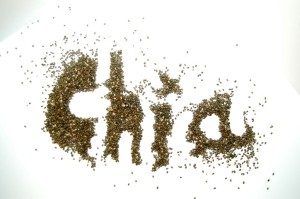
Vegan nutrition doesn’t have to be complicated.
Firstly, eat a balanced diet including at least some legumes (beans, lentils, soy, peas etc), grains (potatoes, bread, rice, pasta, cereal etc), fruits and vegetables (including at least some green vegetables – e.g. broccoli). If you do that, studies1,2 have shown that you would likely be within recommended limits (or at least just as high as meat eaters or the general population) for everything except five items that warrant specific advice:
Vitamin B12 – mostly found in animal products; hard or impossible to be sure to get from natural plant foods in large enough quantities, so it’s best to take a supplement. Other options are to eat processed foods with added B12, or nutritional yeast.
Omega 3s – tend to be low on any diet without fish. But you can get Omega 3s from walnuts, chia seeds and flax seeds (you need to grind them3 before adding them to your food rather than eating whole).
Iodine – many reliable iodine sources are animal products. For vegans, it’s worth making sure you use iodized salt (check the ingredients of the salt) as well as eating specific plant sources of iodine – such as strawberries and cranberries.
Calcium – without specific dietary planning, vegans tend to be low on calcium. Calcium-set tofu, broccoli and other green veg, bread, oranges and legumes (like beans) contain calcium, while almonds are one of the very few plant foods with a very high amount of calcium.
Vitamin D – the main source is your body producing it from sunlight so it is worth taking a supplement (at least in winter) or making sure to get enough exposure to sun. The same advice applies regardless of diet.4
The following foods are great foods for nutrition on a vegan diet: soy, broccoli, walnuts, almonds, avocados and chia seeds. Eat all of those in your diet and vegan nutrition becomes easier. However, no one food is essential to a healthy vegan diet.
For vegetarians that eat only a small amount of dairy and eggs, the above recommendations all apply. For vegetarians that eat a large amount of dairy and eggs and drink milk, you may already be covered for calcium and iodine, but still need to follow the Omega 3 and vitamin B12 advice.
And that’s pretty much it. If you follow only the advice in this article and gave up meat and eggs and dairy tomorrow and never read another word about nutrition, you would probably be just as healthy as before if not better.
If you really want to you can go a step further and read up on protein (legumes), vitamin A (carrots and other vegetables) and zinc (nuts, seeds and legumes) and perhaps other things but that’s only necessary if you’re determined to be extremely cautious. There are equally various things that heavy meat eaters tend to be low on, such as vitamin C, vitamin E, folate and fibre but that’s probably no cause for panic either.
There is a school of thought that vegan nutrition is really hard and there are a long list of potential deficiencies, but this is exaggerated. There are only a few things that need specific attention which is not a big deal compared to the many ethical, environmental and health benefits of veganism.
Sources:
1 – http://www.veganhealth.org/
2 – Becoming Vegan by Brenda Davis and Vesanto Melina (book)
3 – http://online.liebertpub.com/doi/abs…/acm.2011.0443
4 – http://www.nhs.uk/news/2016/07July/Pages/The-new-guidelines-on-vitamin-D-what-you-need-to-know.aspx